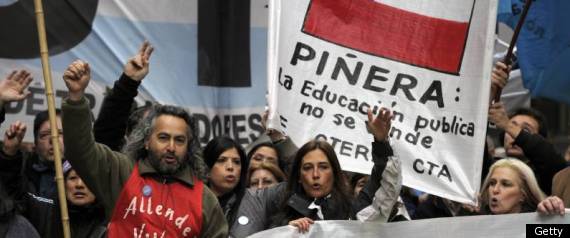By Paula Buzzi
Impunity Watch Reporter, South America
CARACAS, Venezuela – United Nations’ Human Rights Council issued 148 recommendations for Venezuela recently, in part because of the various reports of government human rights abuses towards activists who have publicly criticized government policies. Venezuela, however, has rejected the recommendations despite requests for change from its own allies.

Humberto Prado, 48, an ex-prison inmate turned director and founder of a prison monitoring group, claims he has been fearing for his life ever since he became an activist for prison reform. After criticizing conditions in a prison where inmates rioted in June, Prado began receiving anonymous phone calls at all hours of the night threatening to kill him.
Government officials, however, have ignored his complaints and Prado suspects that they might even be behind the threats. As the harassment intensified and government indifference continued, Amnesty International helped Prado and his family flee to Spain.
Prado is one of many activists who have fallen victim to attacks after President Hugo Chavez took office. Over the last 12 years, 83 activists have been attacked or harassed and 10 have been killed.
Out of the cases involving attacks on activists in Venezuela this year, the Committee of Victims’ Relatives reports that only 13 percent of them are being tried in court while the remaining have been either dismissed or remain in the preliminary investigative stage.
According to the director of the Committee of Victims’ Relatives, Liliana Ortega, various nonprofit groups have been investigated for improper funding after publicly denouncing government policies. Additionally, human rights groups have also reported arbitrary police arrests of activists, illegal wiretapping and restrictions on public meetings.
Last Friday, during the United Nations Periodic Review of Human Rights convention in Geneva, some of Venezuela’s allies, including Brazil, Russia, and Turkey, expressed concern over Venezuela’s criminal procedures, specifically it’s procedural delays, and other human rights issues.
A member of the Venezuela delegation who attended the convention but who wants to remain anonymous was surprised to hear criticism coming from Venezuelan allies. “”The fact that the United States, Britain and Germany questioned the Judiciary was predictable, but Brazil’s criticisms were not,” he said.
The Brazilian delegation expressed concerned about how closely judges and prosecutors work together in criminal proceedings. They called for a more independent judiciary in order to guarantee citizens of Venezuela the essential conditions of a democracy.
For further information, please see:
ABC News – Threats, Violence Rising for Venezuelan Activists – 14 October 2011
El Universal – Even Allies Questioned Venezuela at the UN Human Rights Council – 14 October 2011
CNN – Venezuela Rejects Certain Human Rights Recommendations – 11 October 2011
El Universal – US Asks Venezuela to “Reconsider” Human Rights Suggestions
– 12 October 2011


